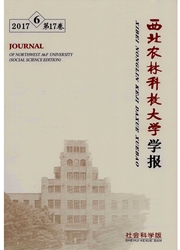

 中文摘要:
中文摘要:
一事一议财政奖补制度是建设农村公共基础设施和获取村级公益事业项目资金的重要来源渠道,是我国农村公共产品供给制度的重大创新。运用贯序博弈和嵌套博弈理论,分析了一事一议财政奖补制度对于村级公共产品供给的影响,并通过对辽宁省125个村的问卷调查,分析了该制度对村级公共产品供给项目数的影响。零堆积负二项回归结果显示:(1)在最近3年内,获得过一事一议财政奖补的村比未获得一事一议财政奖补的村平均多提供约1.3项村级公共产品;(2)邻里关系越和谐、以往提供的公共产品供给质量越高、"一事一议"后期管护越完善、村干部提供公共产品的意识越强,提供的村级公共产品项目数越多;(3)没有发现农户人均纯收入和户数对村级公共产品提供项目数有显著影响。
 英文摘要:
英文摘要:
Finance premium policy for"one case,one meeting"system is the main source of funds for the construction of rural public infrastructure and access to village public welfare projects,and it is a major innovation of China's rural public goods supply system.This paper uses sequential game and nested games theory to analyze the effect of"one case one meeting"policy of financial reward and subsidy system on the amount of village-level public good provision.Based on the questionnaire survey of 125 villages in Liaoning province,the impact of the system on the number of village level public goods supply projects is analyzed.The regression of zero inflated negative binomial count model shows:(1)in the last 3years,the villages with financial premium provided additional 1.3 village-level public items than the village without it;(2)the more harmonious the neighborhood relationship,the more items of village-level public goods are provided;(3)The per capital net income of rural households has no significant influence on the number of households providing public goods at village level.
 同期刊论文项目
同期刊论文项目
 同项目期刊论文
同项目期刊论文
 期刊信息
期刊信息
